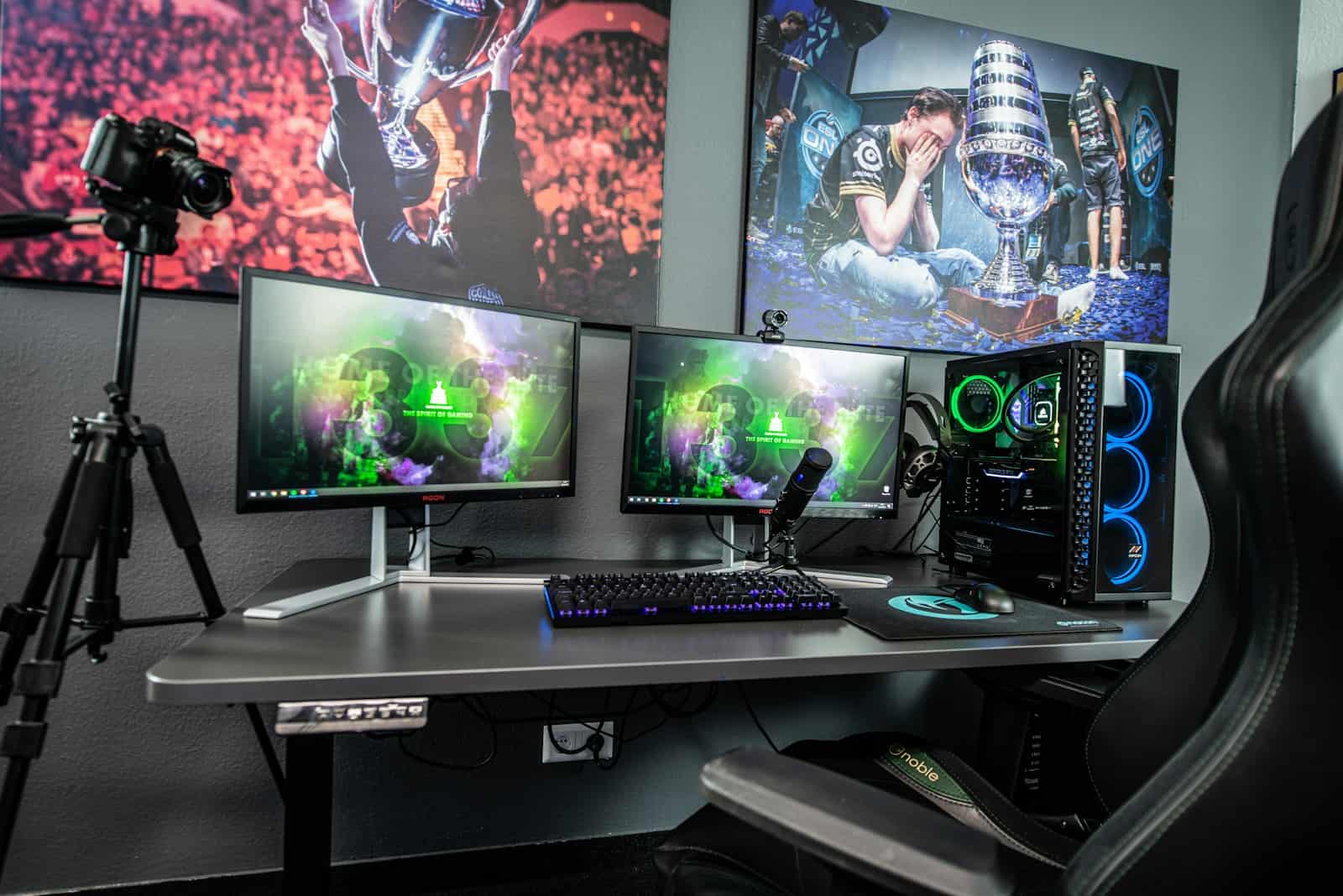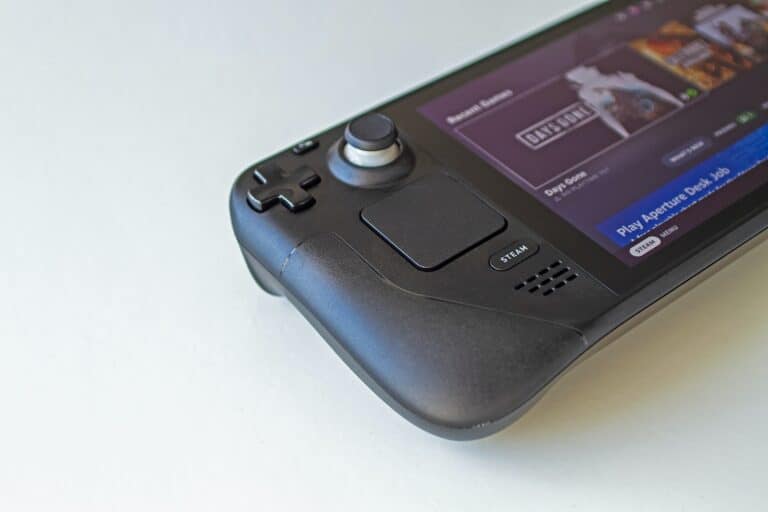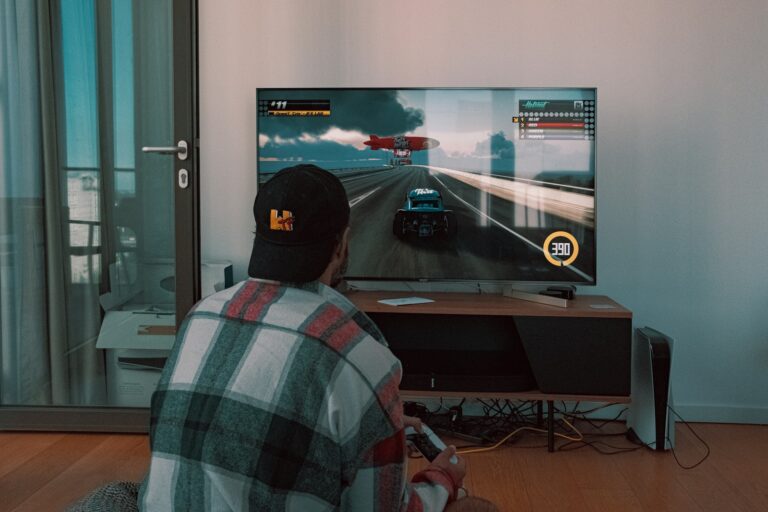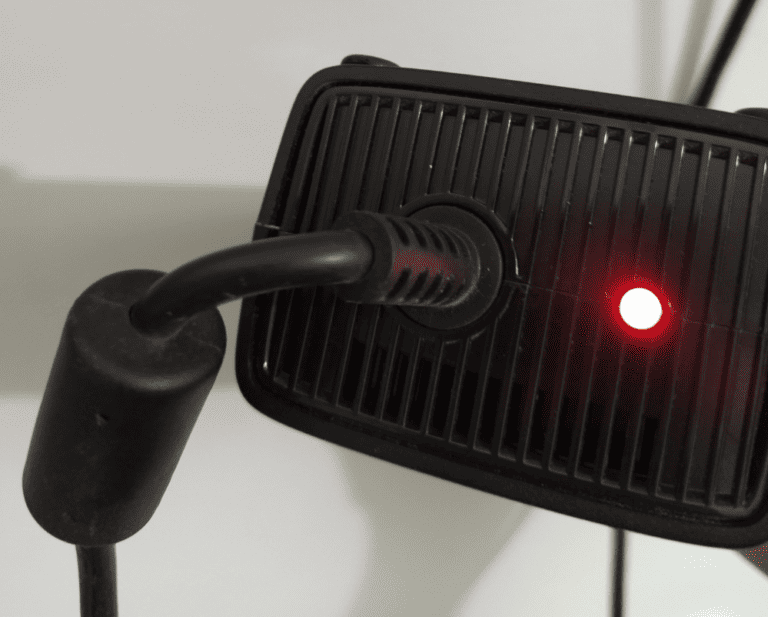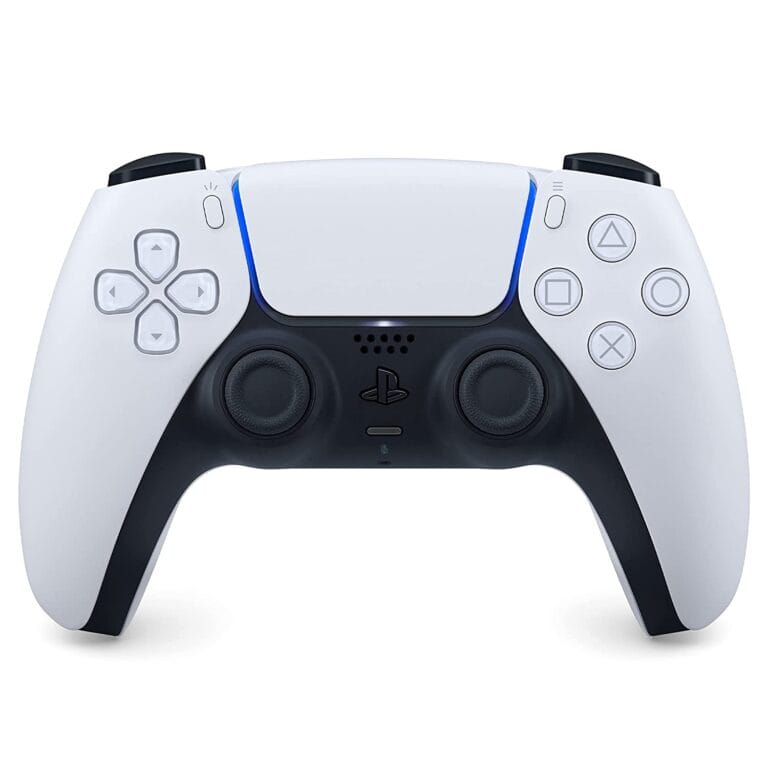When deciding between a gaming PC and a console, it’s important to consider the upfront cost as well as the long-term investment in games and accessories. Gaming PCs offer a wide range of customizable hardware, providing excellent graphics and fast processing. They also allow for upgrades to keep up with advancements. On the other hand, consoles are ready-to-play systems with a fixed hardware set, making them user-friendly and ensuring smooth gameplay for games designed for those platforms.
Consoles are generally less expensive and offer convenience with exclusive titles and straightforward gaming experiences. Ultimately, the choice between gaming PCs and consoles depends on personal preferences and needs.
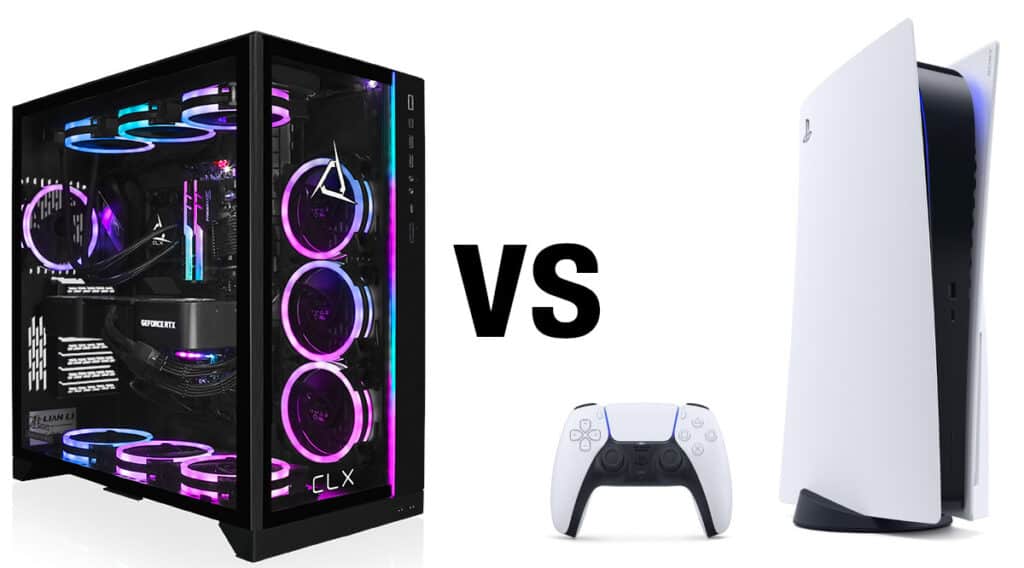
Gaming PCs vs. Consoles: Which Is Better?
The debate between gaming PCs and consoles has been ongoing for decades, but in 2025, the landscape has shifted due to hardware advancements, cloud gaming, and changing game libraries. Let’s break down the pros, cons, and best use cases for each.
1. Performance
- Gaming PCs
- Offer higher performance potential thanks to customizable GPUs, CPUs, and RAM.
- Support 8K gaming at high frame rates (if you have the budget).
- Ray tracing, DLSS/FSR, and ultrawide monitor support are standard for high-end builds.
- Consoles (PS5 Pro, Xbox Series X/S, Switch 2)
- Optimized for plug-and-play performance—games are tuned for the hardware.
- Capable of 4K at 60–120 FPS with ray tracing in many titles.
- No need to tweak settings for performance vs. visuals.
Winner: PC for raw power, Consoles for optimized stability.
2. Cost & Value
- Gaming PCs
- Entry-level gaming PCs start around $900–$1,200 in 2025 due to GPU pricing.
- Long-term cost can be higher due to upgrades and peripherals.
- Consoles
- PS5 Pro and Xbox Series X are around $500–$600, offering strong performance for the price.
- No upgrade costs except for storage or accessories.
Winner: Consoles for upfront value.
3. Game Library & Exclusives
- PC
- Access to the largest game library—Steam, Epic Games Store, Xbox Game Pass for PC, emulators.
- Many console exclusives are now coming to PC after a timed delay.
- Consoles
- Still have true exclusives (e.g., Nintendo’s first-party titles, some PlayStation and Xbox games).
- Game Pass and PS Plus make subscription gaming affordable.
Winner: PC for variety, Consoles for specific exclusives.
4. Flexibility & Upgrades
- PC
- Fully customizable—upgrade GPU, CPU, RAM, storage.
- Can be used for work, streaming, video editing, and more.
- Consoles
- Fixed hardware—no major upgrades until the next generation.
- Limited to gaming and streaming apps.
Winner: PC for flexibility.
5. Ease of Use
- PC
- Requires setup, driver updates, and occasional troubleshooting.
- Consoles
- Plug in, download, and play—minimal maintenance.
Winner: Consoles for simplicity.
6. Future-Proofing
- PC
- Can stay current for 5–7 years with upgrades.
- Supports emerging tech like VR/AR and AI-enhanced gaming.
- Consoles
- Typically last 6–8 years before new hardware launches.
- Limited adaptability to new tech until next-gen release.
Winner: Tie—PC can adapt, but consoles stay relevant for their lifecycle.
Quick Comparison Table (2025)
| Feature | Gaming PC | Console |
|---|---|---|
| Performance | ⭐⭐⭐⭐⭐ | ⭐⭐⭐⭐ |
| Price/Value | ⭐⭐⭐ | ⭐⭐⭐⭐⭐ |
| Game Library | ⭐⭐⭐⭐⭐ | ⭐⭐⭐⭐ |
| Flexibility | ⭐⭐⭐⭐⭐ | ⭐⭐ |
| Ease of Use | ⭐⭐⭐ | ⭐⭐⭐⭐⭐ |
| Future-Proofing | ⭐⭐⭐⭐ | ⭐⭐⭐⭐ |
Bottom Line
- Choose a Gaming PC if you want the best performance, customization, and game variety, and don’t mind paying more upfront or tinkering with settings.
- Choose a Console if you want affordable, hassle-free gaming with great exclusives and hardware that just works out of the box.
Cost
- Initial Investment: Consoles generally have a lower entry price point than building a gaming PC.
- Long-term Costs: PCs can become more expensive over time due to upgrades and component replacements. Console games can sometimes be more expensive than their PC counterparts.
Performance
- Graphics and Framerate: High-end gaming PCs usually outperform consoles in terms of graphical fidelity and framerates (the smoothness of gameplay).
- Optimization: Console games are specifically optimized for their hardware, ensuring a consistent experience.
Games
- Exclusives: Each platform has its library of exclusive titles. Consider which games are most important to you.
- Variety & Availability: PCs offer a broader range of games, including indie titles and older releases, as well as access to frequent sales on digital platforms.
Ease of Use
- Setup and Maintenance: Consoles are plug-and-play, while PCs can require some technical knowledge for setup and upgrades.
- Troubleshooting: Console troubleshooting is usually simpler than resolving technical issues on PCs.
Versatility
- Beyond Gaming: PCs are versatile machines that can be used for work, productivity, creative tasks, and more, in addition to playing games.
Table of Comparison
| Feature | Gaming PC | Console |
|---|---|---|
| Initial Cost | Higher | Lower |
| Long-term Cost | Potentially Higher | More Predictable |
| Performance | Superior with the right hardware | Optimized, consistent |
| Game Library | Extensive | Limited, focus on exclusives |
| Ease of Use | Requires more technical knowledge | Simpler setup |
| Versatility | Multi-purpose machine | Primarily for gaming |
The Right Choice for You
The decision between PC and console ultimately depends on individual priorities. Carefully consider the areas that matter the most to you along with your budget, and you’ll find the platform that best fits your gaming needs.
Key Takeaways
- Gaming PCs offer customization and higher performance, suitable for a range of budgets.
- Consoles provide a user-friendly, cost-effective gaming experience with exclusive titles.
- Both platforms have distinct advantages that cater to different gamer preferences and needs.
Comparing Technical Aspects
When examining the technical aspects of gaming PCs and consoles, key differences arise in performance, graphics, upgradeability, and storage. These factors directly affect gaming experiences and possibilities.
Performance Metrics
Gaming PCs often have powerful CPUs like the AMD Ryzen series, which can handle more complex tasks simultaneously compared to consoles. High framerates and efficient multitasking are typical for PCs due to advanced processors and ample RAM. Consoles, while optimized for gaming, usually operate with fixed hardware that cannot match the performance potential of a constantly evolving PC landscape.
Graphical Capabilities
The GPU or graphics card determines a system’s ability to render high-resolution visuals. Gaming PCs may boast dedicated graphics cards such as the Radeon RX 7800 XT, enabling detailed and smooth visuals even at 4K resolution. Consoles come with integrated graphics solutions streamlined for performance at certain resolutions and framerates, but they lack the customization of PCs.
Upgrade Potential
A significant advantage of gaming PCs is their customization and flexibility. Users can upgrade individual parts like CPUs, GPUs, and cooling systems to improve performance. Consoles, on the other hand, offer limited upgrade options, largely confined to storage expansions or external devices.
Storage Solutions
Both PCs and consoles utilize SSDs for fast storage, but PCs allow for a combination of multiple storage options and sizes. Console storage is typically standardized, though current generations, such as the Xbox Series X and PlayStation 5, include the ability to add supplemental SSD storage to the base unit.
Economic & Experiential Considerations
When choosing between gaming PCs and consoles, several key factors influence the decision. Cost, game availability, user experience, and online services shape the value and enjoyment players get from their gaming platforms.
Cost Comparison
Gaming PC:
- Price: Higher initial investment; customizable hardware.
- Long-term: Potential savings in games and upgrades.
Console:
- Price: Lower upfront cost; fixed hardware.
- Long-term: Costs for games and subscriptions such as PlayStation Plus and Xbox Game Pass can add up.
Game Availability and Exclusivity
Exclusives:
- Consoles often have exclusive titles, especially AAA games.
- PCs benefit from a vast game library, including indie titles and classics, with services like Steam, Origin, and GOG.
Backwards Compatibility:
- Consoles may offer it, enabling play of older games.
- PCs inherently support a wide range of games from different eras without issue.
User Experience and Accessibility
Ease of Use:
- Consoles offer simplicity; generally, plug and play.
- PCs may require more setup and technical knowledge.
Peripherals:
- Consoles typically use controllers.
- PCs allow a choice between controllers, gaming mice, keyboards, and other peripherals for a more personalized experience.
Ecosystems and Online Services
Online Stores:
- Consoles have their own stores, like the Epic Games Store for PlayStation.
- PCs give access to numerous online stores and platforms.
Multiplayer and Streaming:
- Consoles require subscriptions for multiplayer, like Game Pass Ultimate.
- PCs offer more free options, but may have paid services for certain features.
Accessibility:
- Both platforms support streaming, with consoles being more accessible to the casual gamer.
- PCs provide more options for those interested in game development or content creation.
Frequently Asked Questions
In this section, we address some of the most common questions people have when choosing between a gaming PC and a console.
What are the advantages of PC gaming over console gaming?
PC gaming offers flexibility in hardware upgrades and typically provides better performance. The customization option allows gamers to enhance their systems over time, which is a clear advantage over consoles.
How do PC graphics compare to console graphics?
High-end gaming PCs tend to offer superior graphics due to more powerful hardware. They support higher resolutions, faster frame rates, and more detailed textures compared to consoles.
What are the reasons some gamers prefer consoles to PCs?
Many gamers value the ease of use and convenience that consoles offer. With a focus on plug-and-play capability, consoles provide a straightforward gaming experience without the need for technical know-how.
Are there any disadvantages to choosing a console for gaming?
One drawback of console gaming is the lack of upgradability. Players are generally unable to upgrade the internal components of a console to improve performance or graphics as they might with a PC.
How has the popularity of PC gaming changed in relation to console gaming?
PC gaming has seen growth in its fan base due to its versatility and the rise of e-sports. It maintains a strong position even as consoles remain popular for their exclusive titles and accessibility.
In terms of performance, how does a high-end gaming PC stack up against the latest console models like the PS5?
A high-end gaming PC typically outperforms the latest consoles in terms of raw power and performance. It supports higher frame rates and resolutions, which can make for a richer, more immersive gaming experience than what the PS5 and similar consoles can offer.

